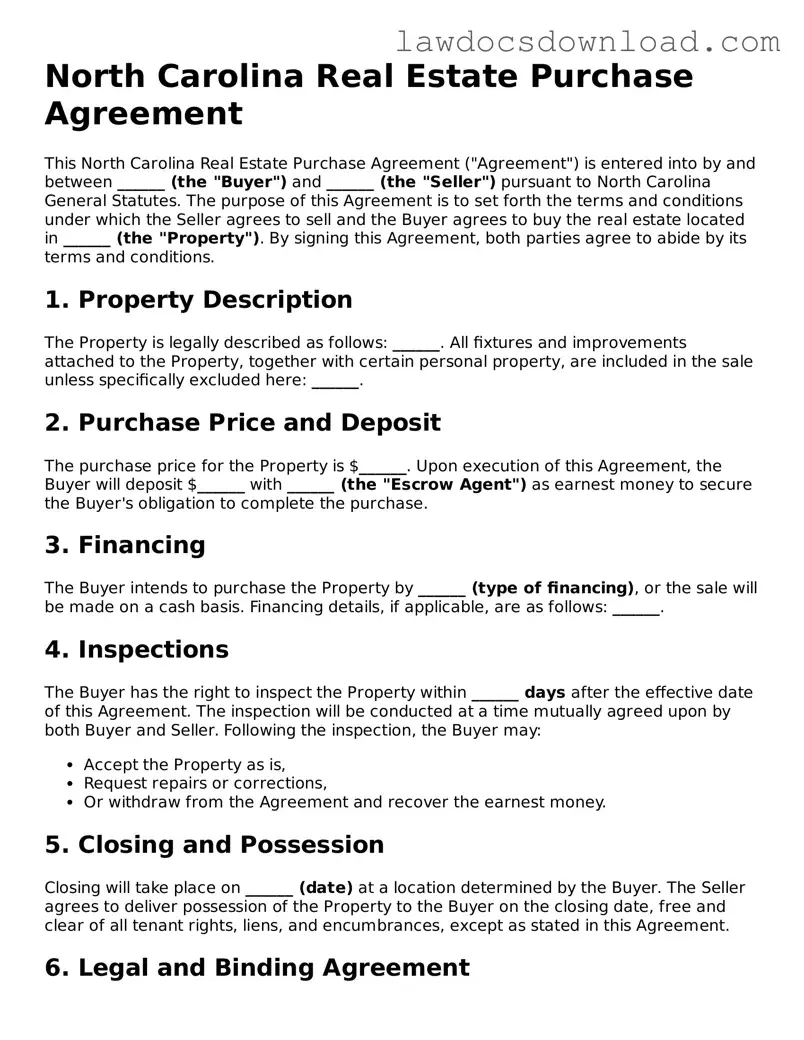Legal North Carolina Real Estate Purchase Agreement Form
The North Carolina Real Estate Purchase Agreement form is a legally binding document between a buyer and seller for the purchase of real estate. It outlines the terms, conditions, and responsibilities of both parties involved in the transaction. Understanding this form is essential for anyone looking to buy or sell property in North Carolina.
Launch Real Estate Purchase Agreement Editor Here

Legal North Carolina Real Estate Purchase Agreement Form
Launch Real Estate Purchase Agreement Editor Here

Launch Real Estate Purchase Agreement Editor Here
or
Free Real Estate Purchase Agreement
Get this form done in minutes
Complete your Real Estate Purchase Agreement online and download the final PDF.